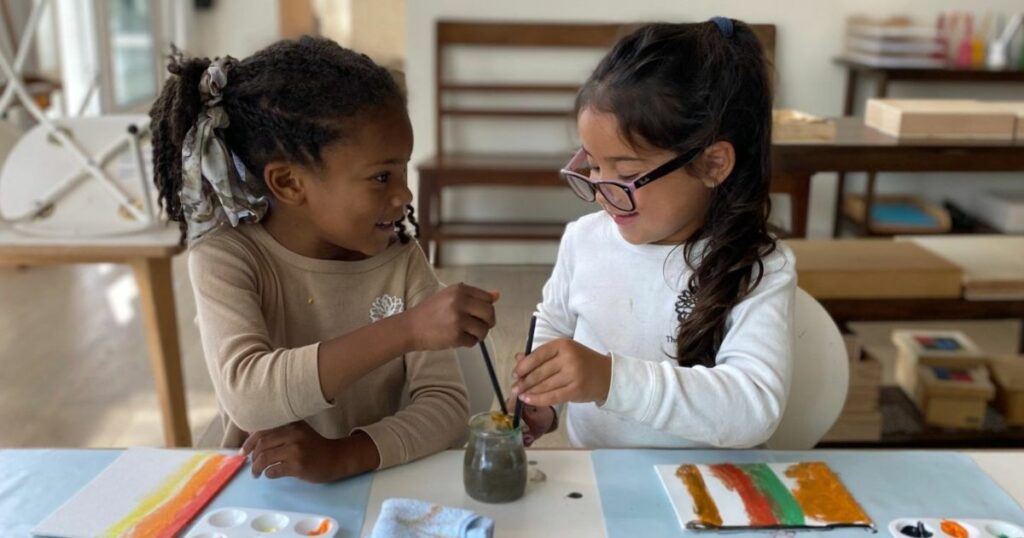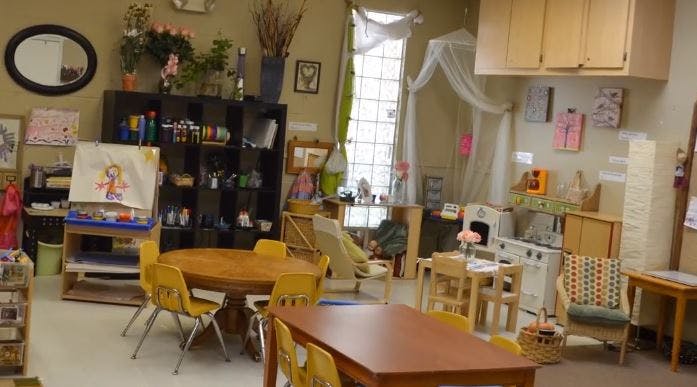One of the most essential factors in the success of Montessori education is the involvement of parents. In this article, we will discuss the role of parents in Montessori education.
The Parent’s Role in Montessori Education
Parents play a crucial role in the success of Montessori education. Their involvement and support can help to create a positive learning environment that encourages the child’s curiosity and independence. Here are some ways that parents can support Montessori education:
Supporting the Child’s Independence
One of the most important aspects of Montessori education is the child’s independence. Parents can support this by allowing the child to make their own choices and decisions. They can provide opportunities for the child to practice self-care skills such as dressing and feeding themselves. Parents can also encourage the child to solve problems on their own and to take responsibility for their actions.
Creating a Montessori Environment at Home
Montessori education emphasizes the importance of the environment in the child’s learning. Parents can create a Montessori-inspired environment at home by providing open-ended toys and materials that encourage exploration and creativity. They can also organize the child’s space to promote independence and orderliness.
Encouraging Exploration and Discovery
Montessori education encourages children to learn through play, exploration, and discovery. Parents can support this by providing opportunities for the child to explore their surroundings and to engage in hands-on activities. They can also encourage the child to ask questions and seek answers through their investigations.
Respecting the Child’s Choices and Interests
Montessori education places a strong emphasis on the child’s individuality and interests. Parents can support this by respecting the child’s choices and interests. They can provide opportunities for the child to pursue their own passions and to explore their own ideas.
Communicating with the Teacher
Parents should maintain open communication with the Montessori teacher. They can provide feedback on the child’s progress and ask for suggestions on how to support their child’s learning at home. They can also share any concerns or questions they may have about their child’s education.
Participating in School Activities and Events
Montessori education emphasizes the importance of community involvement. Parents can participate in school activities and events, such as parent-teacher conferences, school trips, and fundraisers. They can also volunteer in the classroom and participate in parent education programs.
Conclusion
In conclusion, parents play an important role in Montessori education. Their support and involvement can help to create a positive learning environment that encourages the child’s curiosity and independence. By supporting the child’s independence, creating a Montessori environment at home, encouraging exploration and discovery, respecting the child’s choices and interests, communicating with the teacher, and participating in school activities and events, parents can help to ensure the success of Montessori education.
FAQs
- What is Montessori education? Montessori education is an approach to education that emphasizes the child’s natural curiosity and desire to learn. It is a child-centered approach that encourages children to learn through play, exploration, and discovery.
- How does Montessori education differ from traditional education? Montessori education differs from traditional education in that it places emphasis on the child’s individuality, creativity, and independence. It encourages children to learn through hands-on activities and exploration rather than through traditional teaching methods.
- What is the role of parents in Montessori education? The role of parents in Montessori education is crucial. Parents can support the child’s independence, create a Montessori environment at home, encourage exploration and discovery, respect the child’s choices and interests, communicate with the teacher, and participate in school activities and events.
- Can parents implement Montessori education principles at home? Yes, parents can implement Montessori education principles at home by providing open-ended toys and materials, creating an organized and independent space for the child, and encouraging the child to explore and discover on their own.
- How can parents communicate with the Montessori teacher? Parents can maintain open communication with the Montessori teacher by attending parent-teacher conferences, sharing feedback on the child’s progress, and asking for suggestions on how to support their child’s learning at home. They can also communicate any concerns or questions they may have about their child’s education.






